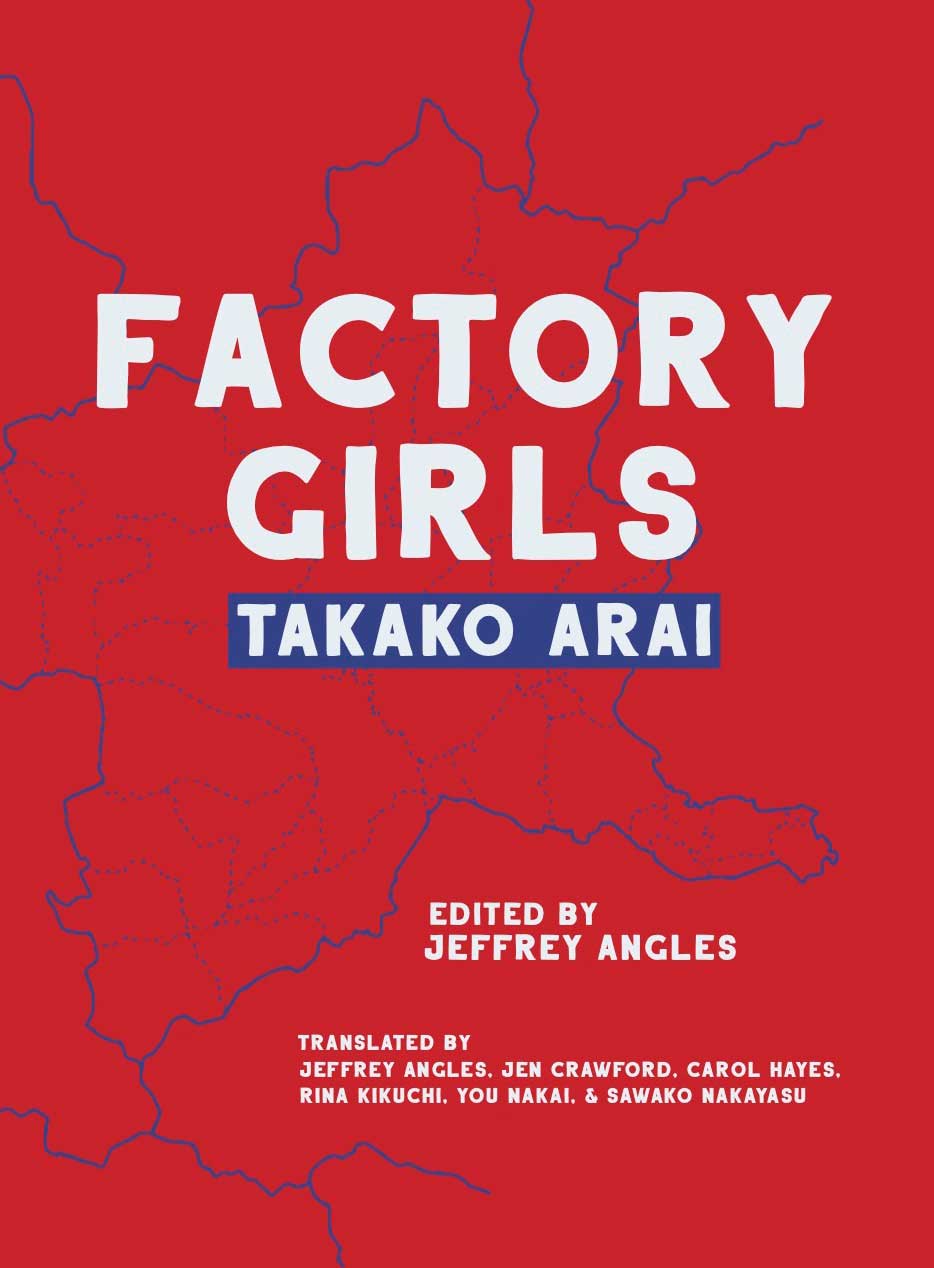
Factory Girls
Takako Arai
Edited by Jeffrey Angles . Translated by Jeffrey Angles, Jen Crawford, Carol Hayes, Rina Kikuchi, You Nakai & Sawako Nakayasu.
ISBN 978-0-900575-84-6 | $18.00 | November 1, 2019
“A FIRE IS COMING! IT WILL BE HERE SOON! A FEMALE SNAKE KEPT WARNING US”
This first English-language volume from Japanese poet, performer and publisher Takako Arai collects engaging, rhythmically intense narrative poems set in the silk weaving factory where Arai grew up. Factory Girls depicts the secretive yet bold world of the women workers as well as the fate of these kinds of regional, feminine, collaborative spaces in a current-day Japan defined by such corporate and climate catastrophes as the rise of Uniqlo and the 2011 earthquake, tsunami and nuclear disaster.
PRAISE FOR TAKAKO ARAI
“Takako Arai weaves. We see, or rather, we hear her threads extending horizontally, extending vertically, extending down into the earth where they grow entangled. There are many living poets who work with the Japanese soil and language, engaging with Japanese society. But I know of no other woman who has succeeded with such skill in finding a native language, cutting it out with such sharp precision, and using it to speak with such a vivid, lively voice.”
—Hiromi Ito
“A person can learn not only a lot, but everything, about the world—about the unplumbed shadows and fate and salvation of the world—by living beside and inside the movements and metamorphoses — the spinning — of those most vulnerable to being forcibly lost within it. I learn a lot — I learn everything — by listening, for example, to Takako Arai. Her poetry, through these brilliant translations, is, in fact, the kind of altar-as-homage-as-storytelling I need, especially now and always: that of the acute and deeply compassionate choreography of counting and recounting (sometimes into dancing) the dead.”
—Brandon Shimoda
“Ghosts, people, factories, and creatures blow through each other like smoke rings in Takako Arai’s startling poems. Her images are so vivid and vermicular, they all but crawl under the reader’s skin. Again and again, Arai shuffles present, past, and future into a borderless time where dreamlife and factory work (which smells of “machine oil, hair oil, and breast milk”) merge into a mythic quotidian, and every event, with its understated political implications, “spins on and on to the end of time.” Arai siphons language from every kind of diction and lights it on fire. This is a book no one forgets.”
—Forrest Gander
ABOUT THE AUTHOR
Takako Arai is an avant-garde poet born in 1966 in Kiryū, Japan, an area historically known for its magnificent weaving. She is the author of three Japanese books of poetry and is known for her descriptions of the lives of the women she saw in the small factory on her father’s property. She is the winner of the Oguma Hideo Prize and was a participant in the Iowa International Writing Program. She lives in Yokohama and is an associate professor at Saitama University.
ABOUT THE EDITOR
Jeffrey Angles is a bilingual poet working in both Japanese and English. His book of Japanese poetry Watashi no hizuke henkōsen (My International Date Line, 2016) won the Yomiuri Prize for Literature, making him the first non-native speaker ever to win this prestigious prize for poetry. His many translations include Killing Kanoko by Hiromi Itō (ActionBooks, 2009) and the modernist classic The Book of the Dead by Shinobu Orikuchi (University of Minnesota Press, 2016). He is a professor of Japanese literature at Western Michigan University.